The British Army could be depleted within six to twelve months if faced with a large-scale conflict akin to the war in Ukraine, Defence Minister Alistair Carns has warned.
Speaking at a conference hosted by the Royal United Services Institute (RUSI), Carns highlighted the critical role of reserves in addressing the challenges of modern warfare and sustaining the armed forces during protracted conflicts.
Citing casualty rates from Russia’s ongoing invasion of Ukraine, where an estimated 1,500 soldiers are killed or injured daily, Carns said such attrition would rapidly exhaust the British Army’s current capabilities.
“In a war of scale – not a limited intervention, but one similar to Ukraine – our army, for example, on current casualty rates, would be expended in six months to a year,†Carns said. He stressed the need for the UK to enhance its ability to “generate depth and mass rapidly in the event of a crisis.â€
Carns, who recently joined the reserves himself after serving as a Royal Marines colonel, highlighted the importance of rebuilding the UK’s reserve forces. He argued that while the British Army does not necessarily need to grow in size, it must have the capacity to quickly expand in times of crisis.
“The reserves are critical, absolutely central, to that process,†Carns stated. “Without them, we cannot generate mass; we cannot meet the plethora of defence tasks.â€
He called for an overhaul of the reserve recruitment process, describing it as overly complex and in need of simplification. Carns noted he had been holding discussions on streamlining the system to make joining the reserves more accessible.
Carns also pointed out that the UK lags behind its NATO allies in leveraging its reserve forces, calling for a shift in focus to align with the practices of other member states.
“We need to catch up with NATO allies,†he said, underlining the importance of fully integrating reservists into the broader defence strategy.
General Sir Jim Hockenhull, Commander of UK Strategic Command, echoed Carns’ sentiments at the conference, describing reservists as “fundamental to our national security.â€
Hockenhull highlighted the critical contributions of specialist reservists, including the 2,000 personnel working at Strategic Command, which account for 7.5% of its workforce. He noted their role in various capacities, including training Ukrainian medics to address the unprecedented number of amputations caused by the war.
“There are more amputees as a consequence of the war in Ukraine than there are service personnel in the British Army,†Hockenhull remarked. “Many of our reserve medics are on the front line of helping that support and building capacity.â€
The general argued for the need to integrate reservists into the armed forces fully, stating that their contributions must be “baked in, not bolted on.â€
Carns’ comments underline the vulnerability of the British Army in the face of sustained attritional warfare. He said Russia’s ability to endure heavy losses and rebuild its forces highlights the importance of having a layered and adaptable military structure.
At the UK Defence Journal, we aim to deliver accurate and timely news on defence matters. We rely on the support of readers like you to maintain our independence and high-quality journalism. Please consider making a one-off donation to help us continue our work. Click here to donate. Thank you for your support!



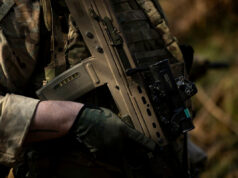

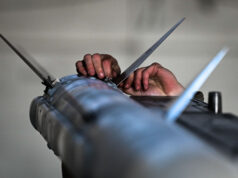

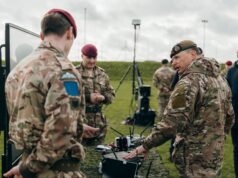
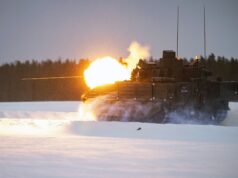
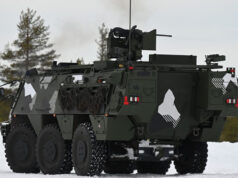

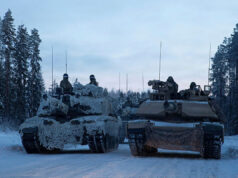

Hopefully the idea is not to engage in the type of warfare we are seeing now in Ukraine. If the UK is involved in such a gruelling war of attrition we have made a grave mistake
Why? If the enemy is as competent and the is an overmatch of bodies to the frontline length then war of attrition is what occurs regardless.
Same if one side cannot knockout the other side.
I think the point is that the British Army could not survive a war of attrition as it has so little mass and paltry war stocks.
Hi Blessed….Indeed. We invented the tank and fielded it in the middle of WW1 to start the switch from attritional warfare to manouevre warfare.
If even just 1 or 2 nations sent troops to fight along side UKR & engage in airstrikes & keeeping the airspace defended Russia might well have cut sg=hort its losses & withdrawn by now. A great many UKR lives & buildings would’ve been saved.
So I think the necessity of being capable of fighting alongside UKR & other allies is crucial to being credible & deterring enemies from agression.
Putins threats are just empty bullying. Shame on us for taking them so seriously.
Ridiculous comparison given Ukraine shares a large land-border with Russia, whereas the only land-border we have have is with Eire (and the Sally Army and Boy Scouts could probably stop an invasion from that direction). As an island, our primary defence has always been the sea, which is why the navy and air-force are our first line of defence. The army has been expeditionary from Napoleonic times, which means, if it is fighting, it’s fighting on foreign soil with allied armies alongside. Ukraine has been fighting alone.
While reservists are important and sadly underated, the greater danger is of running out of both munitions and weapons first. That’s been Ukraine’s experience.
Hi Spock, The British Army is certainly expeditionary in outlook and would fight alongside 31 NATO allies in Europe if we go to war with Russia. But if we were forced to go from a manouevrist style of warfighting to an attritional style (strongly undesired) then it could not survive such a war of attrition for more than 6 months (some would say less than that) as the Field Army has so little mass and is said to have paltry war stocks.
We always worked on the basis that a unit or formation was no longer Combat Effective (CE) if it had 35% casualties and/or equipment losses. Thus an armoured regiment of 58 tanks and 400 men, would not be CE if 20 tanks were destroyed/irrepairable and/or 140 men were killed, wounded, missing or were captured. That unit would have to come out of the line and be refurbished.
1500 casualties per day would eliminate the Army as an effective force within weeks, not months.
Having been one til this summer, I do not rate the Reserves as highly as you do: many of my compadres in the medics had zero clinical experience and basic soldiery-skills and apart from some people doing the same job in the Army as they do in normal life (doctors, nurses, paramedics, LGV and FLT drivers etc etc), most Reservists (except maybe the better Inf/SF types) would need both extensive / intensive training before deploying…. but who is going to carry this out? And we would probably need Reservists to help the police and RAF Regt to guard airbases, ports and the many other things that need guarding.
I’m afraid my view is that only people who have relevant skills or who are prepared to put in the effort to be “Near Peer” with Regulars should be in the Reserve….everyone else should be in the “National Defence Regiment”
Well, the above statement by Defence Minister Alistair Carns has been repeatedly spoken and written about for god knows how many years including by many people on here!
FUTURE SOLDIER is the effort which is meant to be starting addressing his exact words above
Round and round in circles we seem to go
They should stop the talking down the UK armed forces and seriously think on how to fix the weak spots, roll up their sleeves and get on with fixing it! Action and leadership required. If they’re short on ideas then read “ukdj” more often!! Lol😆
So would most NATO armies.
Which is why we should be a major sea, air, and intelligence power and only do so much in the land domain in NATO, one proper Armoured Division, working in concert with NATO allies. A second Division in the UK can reinforce and do out of area non NATO roles.
In the Cold War, how long was BAOR/NORTHAG meant to last before going nuclear? A few weeks. With an army of 160,000.
Expanding the army in a realistic way, while welcome, even back to 80k would not change this fact.
Nothing has changed and I do not want to see the RN and RAF and our expeditionary and other niche capabilities scrapped so Labour can be “Good Europeans” and expand the army which will make no difference to this fact. This is exactly the path I fear the SDR will take.
Hiya Daniele , a small favour to ask. Can you ping me a redly? I suspect my post notification is not working on my side . Thanks Mate.
Hi mate.
Mines not worked in many a week.
Sadly I fear this is where we are headed. A continental strategy for an island nation.
Hi Sjb, Too parochial and outdated to dwell overly on our island status. We are committed to more than Home Defence and have been since 1949. We are required to deter and defend (if deterrence fails) across the whole Euro/Atlantic area, with 31 allies.
Sounds very sensible so no chance of it happening.
Surely we wouldn’t be fighting trench wars of attrition.
That’s from the wrong century and automatically plays into the hands of the country with more numbers.
Sam, I don’t think Russia or Ukraine envisaged fighting a trench war of attrition. It’s not what modern armies do…or seek to do.
If the BA was forced into attritional warfare this article says it would cease to exist in 6 months, although many others think t would be a much shorter time.
It’s bad maths all over again.
A Russian Force half a million strong is taking 1.5k casualties per day on a 1,000m front, and we’ve applied that casualty figure to a force that would hold a much smaller frontage and would only be a small % of the over all force.
That 1,500 per day loss rate would be amortised over 31 NATO Armies, not all focused on us.
The more pressing question I’d can we train 41 replacements per day (1500/31)
Months!? haha, weeks.
Why do you post on or even visit this site ?
This situation could apply to most armies of the world unless you’re USA China India N Korea with large armies.
So why are we beating ourselves up over it?
The Army is not going to be 250,000 strong and unlikely to even get back to 160,000, as the rise of the Drones will in time reduce human combat.
Time for the UK to stick to and focus on Air and Sea assets.